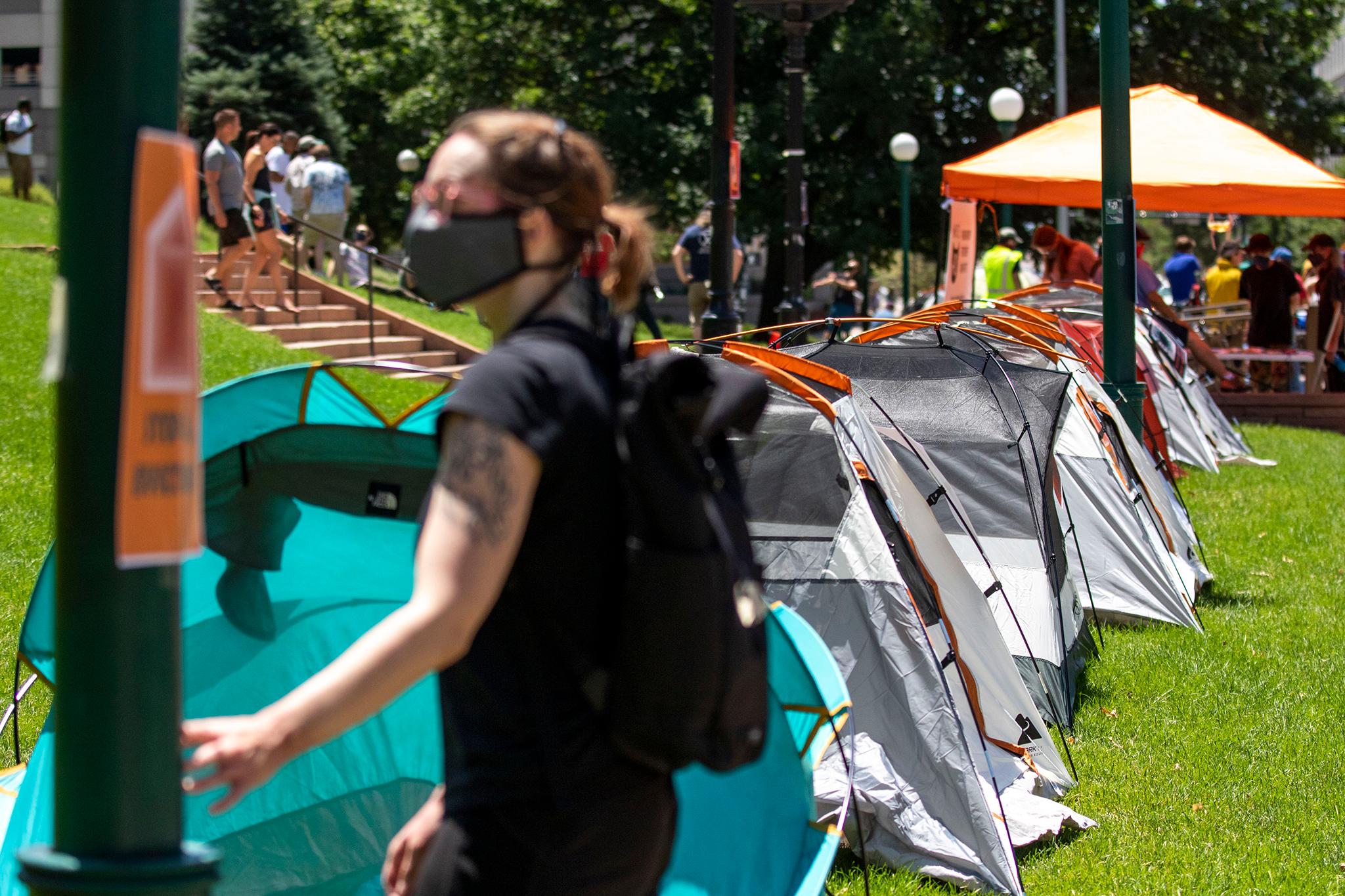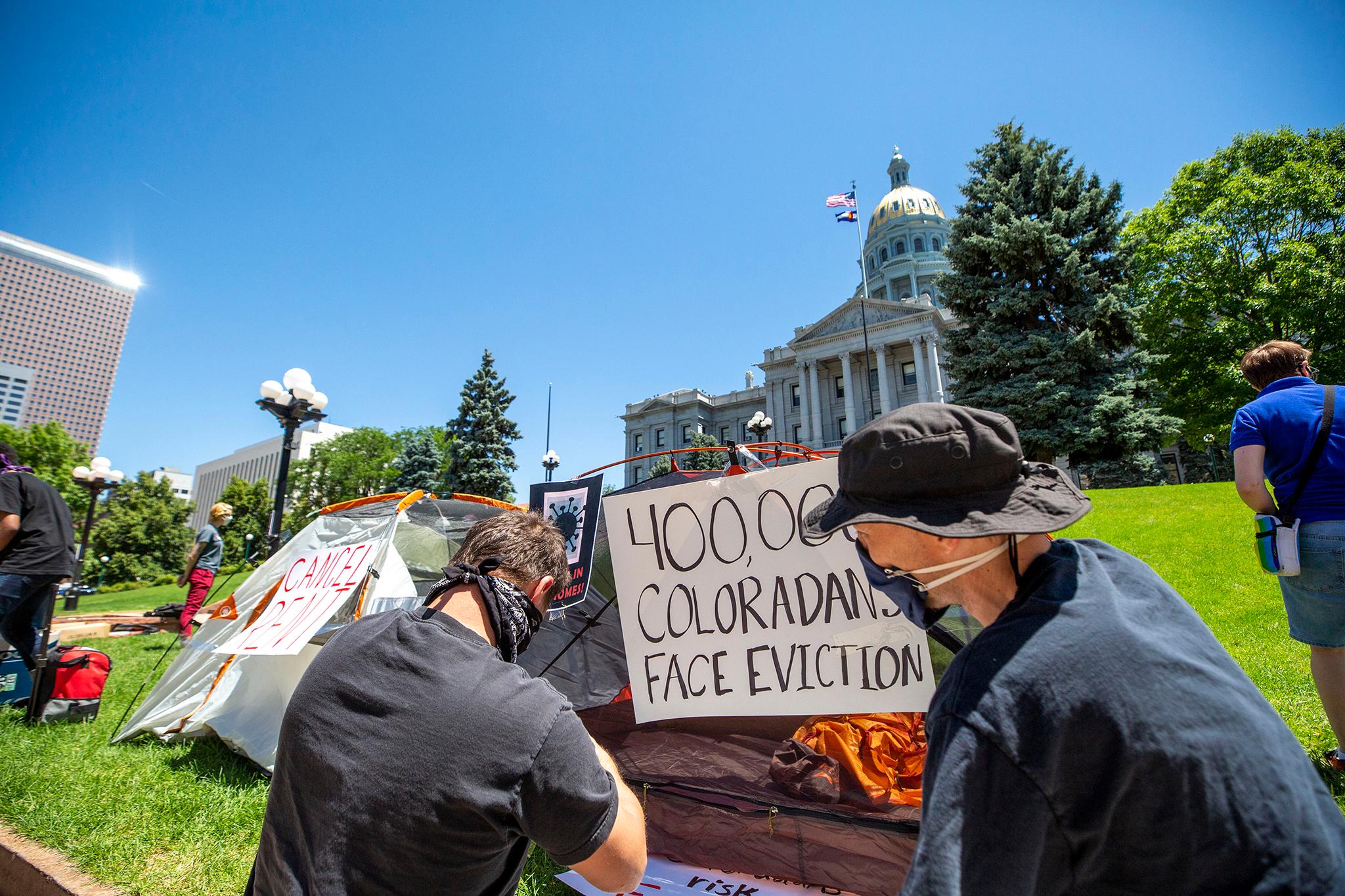Colorado landlords report that they collected rents in the fourth month of the pandemic at a rate only slightly lower than last June.
Tenants' rights advocates worry some renters won't be able to keep up payments for long.
The Colorado Apartment Association said 95.4 percent of renters had paid by late June this year, compared to 96.1 percent for June of last year. It based it's figures on reports from apartment managers on a total of 94,935 units. The managers' portfolios ranged from 74 units to more than 20,000.
"We continue to see strong rent payments in the fourth month after the coronavirus shutdowns began," Mark Williams, executive vice president of the Colorado Apartment Association, said in a statement Tuesday. "This is a sign that Colorado renters and housing providers both are committed in identifying payment solutions for those residents being impacted by the crisis."
Williams's group said its figures matched those of RealPage, a national real estate data analytics firm. RealPage ranked Colorado's rent collection rate ninth best out of 47 states that reported adequate data.
The apartment association said its members report they have been able to cover their mortgages, though some smaller landlords or those with many tenants working in hospitality and other hard-hit sectors report lower payment rates. The association said some of its members applied for federal Paycheck Protection Program loans issued to try to keep workers employed amid the coronavirus economic slowdown.
Tenants' right advocates point out that many tenants were living paycheck-to-paycheck and spending dangerously high portions of their income on housing before the pandemic. The also note that $600 a week in coronavirus-response unemployment benefits in addition to state benefits will stop being disbursed at the end of July unless the federal government extends it.
The Denver chapter of Democratic Socialists of America, Denver Homeless Out Loud, Colorado Jobs With Justice and the Colorado Poor People's Campaign set up tents near the Capitol on Wednesday, the first day July rent was due. The tents symbolized what advocates worry will be the future homes of 400,000 Coloradans who could be evicted.

"We're trying to draw attention to the fact that Gov. Polis' and state government response was wholly insufficient," said Kaley LaQuea, communications chair of Denver Democratic Socialists of America.
Gov. Jared Polis' temporary ban on evictions in Colorado expired June 13 without legislators addressing the issue. Polis issued an order hours before the eviction ban expired that allows landlords to begin the eviction process by posting notices demanding payment, but allowing 30 days instead of the usual 10 to catch up on rent payments.
"We already have a housing crisis," LaQuea said. "We already had a severe lack of affordable housing."
LaQuea called on Polis to cancel rent "and keep people in their homes."
Researchers for the Colorado-based COVID-19 Eviction Defense Project estimate that by the end of September, at least 19 million people face eviction across the U.S. because of the coronavirus's impact on the economy. Among them are 420,000 Coloradans.
"Now that Colorado is opening back up in a safe and responsible way, we continue to analyze the data, and the numbers show that rent payments likely will continue to stabilize in the coming months," Williams said. "Analyzing true data is the only way to understand what may come in future months. Creating fear with lack of knowledge about the industry and lack of experience with Colorado's economy is not the key to predicting Colorado's future in rental percentages, as some have recently done."
While evictions have been put off, the rent is still due. The Colorado Apartment Association has urged tenants whose earnings have been hurt because of the coronavirus to talk with their landlords about paying in smaller increments over time and to seek help from rent relief funds, including one to which the association has contributed that is reporting a record number of requests for help.













